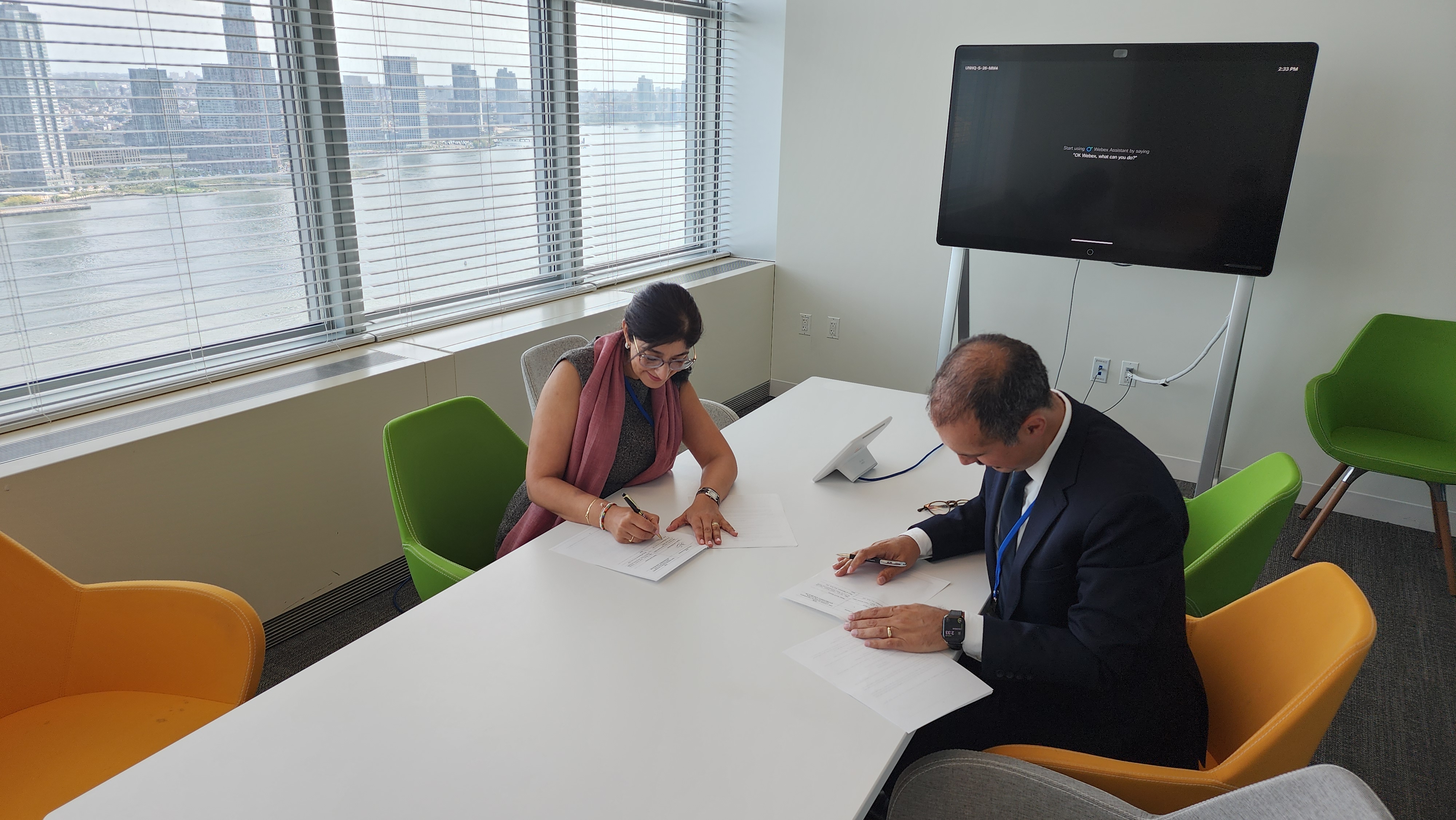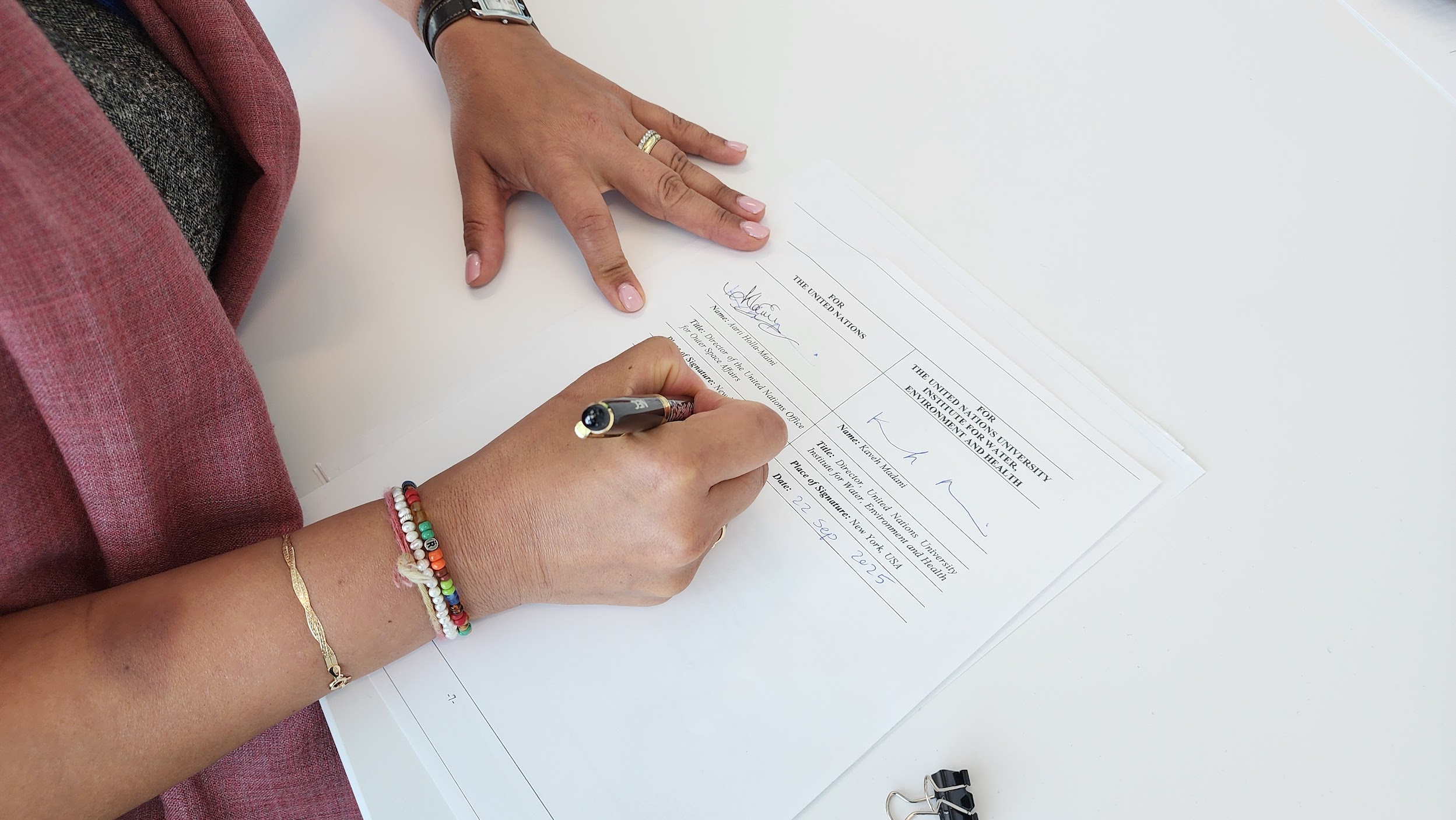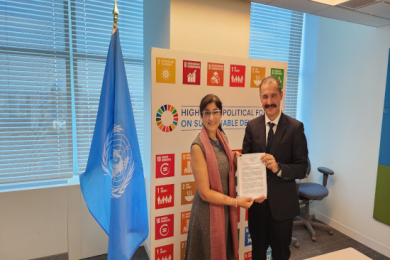UN-SPIDER has welcomed a new Regional Support Office at the United Nations University Institute for Water, Environment and Health (UNU-INWEH). The cooperation was formalised through a memorandum of understanding signed on 22 September by Aarti Holla-Maini, Director of the United Nations Office for Outer Space Affairs (UNOOSA), and Kaveh Madani, Director of UNU-INWEH. The signing took place in New York on the sidelines of the 80th session of the United Nations General Assembly.
“We are delighted to welcome UNU-INWEH as the newest Regional Support Office in the UN-SPIDER network. This partnership brings together space-based solutions and world-class expertise on water, environment, and health at a time when climate change is amplifying disaster risks worldwide. By joining forces, we strengthen our ability to support countries, especially in the Global South, in turning satellite data into actionable insights that save lives, safeguard livelihoods, and build resilience for the future,” said Aarti Holla-Maini.
“Space-based information has enormous potential to save lives and reduce the impacts of disasters,” said Prof. Madani. 
"Through this Regional Support Office, UNU-INWEH will help bridge science, policy, and practice to equip governments and communities with the tools and knowledge to anticipate, respond to, and recover from disasters more effectively."
UNU-INWEH adds deep expertise on water security, ecosystem health, and climate adaptation to the UN-SPIDER network. As an RSO, it will help countries use satellite data before, during, and after disasters, with early priorities that include flood and drought monitoring, impact assessment, recovery planning, and water quality and sediment tracking in rivers, reservoirs, and deltas. The partnership will advance risk analytics that combine Earth observation with climate, hydrological, and socio-economic data so that decision-makers have timely, reliable information.
The new office will also support practical uptake. UN-SPIDER and UNU-INWEH plan to provide technical advisory support to Member States that request help on early warning and emergency management. They will co-develop simple toolkits and guidance that adapt global methods to local data and capacity, run regional trainings that pair satellite methods with hydrological models, and document best practice through case studies from the Global South. The emphasis is on solutions that national agencies can operate in-house and sustain over time.

Countries can request support through UN-SPIDER for capacity development, advisory missions, or targeted analysis for ongoing hazards. Working with national disaster management authorities, water and environment ministries, and regional partners, the new RSO will help turn open data and tools into operational services. This collaboration strengthens UN-SPIDER’s mission to ensure that all countries can access and use space-based information for disaster risk reduction, emergency response, and recovery.

